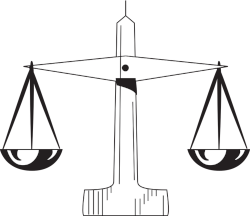
There was certainly no shortage of controversy and armchair quarterbacking in this case. As a medical director of an expert witness agency, I, too, critiqued the experts in this case as keenly as my grandpa, who as a retired sportscaster, did virtual play-by-play of many Super Bowls from his living room.
Plaintiff’s experts had an easy time testifying about asphyxiation. There were 9 ½ minutes of video showing Derek Chauvin leaning onto George Floyd’s neck with his knee. Much of that time Mr. Floyd was nonresponsive.
However, in a criminal case the bar for conviction is pretty high. A defense expert only has to plant credible seeds of reasonable doubt in the mind of some of the jurors to either obtain an acquittal or conviction on lesser charges than murder.
That being said, the defense report and the testimony in these matters must be on point, and able to withstand a detailed and withering cross examination. Accordingly, the medical evidence cited, the analysis, and the opinion must be drafted and expressed with cross examination being the entire focus.
Dr. Fowler’s testimony was akin to an affirmative defense case because he opined that it was George Floyd’s pre-existing conditions (heart disease, hypertension, presence of fentanyl and methamphetamines) that caused a fatal heart arrythmia, just as likely or more likely than any pressure applied to Mr. Floyd’s neck. This is a good argument. Sudden cardiac arrythmias cannot be proven on any autopsy. It is a frequently used explanation in death cases.
He should have stopped there. But, he then went on to say that carbon monoxide from the car exhaust was a contributing factor.
That last comment was, well, toxic to Dr. Fowler’s testimony. Cross examination on that point was simple for the prosecutor who pointedly asked him whether he knew the amount and duration of such carbon monoxide exposure was, and not only was he able to extract a “no” from the witness, but also an admission that it was minimal. This was in addition to the witnesses’ mistake of citing references about sudden cardiac arrythmias that were dissimilar to Floyd’s fact pattern, already established and admitted, with 9 ½ minutes of at least some airway obstruction. That garnered another admission from the witness.
There will always be expert witnesses opining divergent opinions regarding causation. Unresolved conflict gets one into a courtroom, no doubt, setting aside the obvious politics involved in this matter.
We have handled cases where affirmative defenses claiming cardiac arrythmia, seizures, and other fleeting and unprovable sudden medical events are claimed to have caused injuries and accidents. In order to be successful, such expert testimony needs to be on point, tight, with anticipated credibility on cross examination being the litmus test of whether to proceed in this direction or not. Medical professionals are used to casting a broad net and are unafraid of being speculative in their approach. However, speculative or low probability theories do not belong in expert reports, and attorneys preparing expert witnesses need to remind their witnesses to stay in their lane and keep to their reports when testifying. Even before that, in the preparation of reports, if the medical literature is not precisely on point, don’t cite it; and if there is no actual hard proof of the unprovable (in this case a cardiac arrythmia) the expert should be encouraged to state so in the report.
I don’t know if the outcome in the Chauvin case would have been different had Dr. Fowler given more precise and accurate testimony, garnering him better credibility with the jury on cross examination. However, he would have done a much better job and better expert testimony serves justice well.
by Jon B. Tucker, MD
Medical Director
MedicoLegal, Inc.
Pittsburgh, PA



